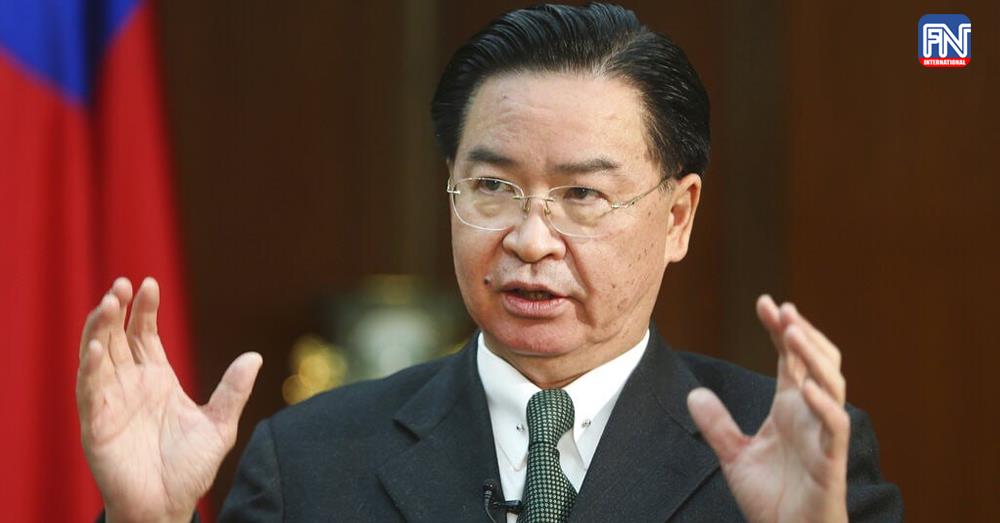TAIPEI, Aug 2 (AFP) - A Chinese invasion of Taiwan would have "disastrous results" for the world, Foreign Minister Joseph Wu told AFP in an interview Wednesday, citing the island's strategic importance for the semiconductor industry and global shipping lanes.
Wu's warning comes as democratically ruled Taiwan heads towards a presidential election next year, while facing increased military and political pressure from China across the Taiwan Strait.
Beijing claims Taiwan as its own territory and has vowed repeatedly to take it one day -- militarily, if necessary.
Wu said any act of force against Taiwan would have global reverberations.
"What we need to do is to explain to the international community that if there's any conflict involving Taiwan, it's going to have disastrous results for the rest of the world," Wu said, pointing to the food and fuel shortages, and spiralling inflation, that resulted from Russia's invasion of Ukraine.
The consequences of a cross-strait conflict are largely commercial -- more than 50 percent of the world's shipping containers pass through the 180-kilometre (110 miles) wide waterway separating Taiwan from mainland China.
Freedom of navigation is therefore one of the "crucial elements of international security and prosperity".
Taiwan also holds a near-monopoly on producing semiconductors, the microchips that are the lifeblood of the modern economy and power everything from simple coffee machines to complex weaponry such as missiles and defence infrastructure.
"Think about the disruption of the supply chain," he told AFP in a wide-ranging interview.
"We hope that the Chinese government will not resort to the use of force against Taiwan, because the impact is going to be too serious for the world."
As Taiwan gears up for January's presidential election, Wu said the island was seeing a "more sophisticated" disinformation campaign to influence its 23 million-strong population.
"What China has been doing in engaging in cognitive warfare is to change the thinking of the critical minority here in Taiwan -- to vote the other way so they can change the outcome of the election," he said.
Wu is part of the Democratic Progressive Party (DPP), perceived as more pro-United States than the opposition Kuomintang Party.
The DPP administration is headed by President Tsai Ing-wen, who is in her final term in office and is hated by the Chinese leadership for her refusal to accept that Taiwan belongs to China.


